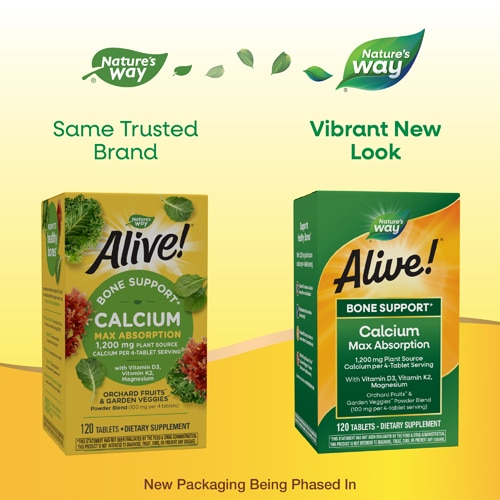Most of us have been hearing about the importance of calcium since childhood. It was the reason behind that glass of milk at lunch, the way we could get “big, strong bones,” the whole point of consuming broccoli.
But as we age and other vital nutrients start taking up the spotlight—hello, turmeric—calcium may be inadvertently overlooked, or mistakenly assumed that we are, by virtue of our diets, getting sufficient amounts.
Although it’s the most abundant mineral in the body—with 99% of it found in calcium deposits in our bonesand teeth—many are, however, at risk of not having sufficient levels: we lose calcium naturally (through urine, stools, nails, hair, sweat and skin) and the average American has a less-than-stellar diet, with conventionally-grown crops containing less of the mineral than they used to. It’s a critical issue to pay attention to, in that calcium plays a role not only in bone health but also in supporting nerve and muscle function.
At the same time, boosting your calcium levels may feel like a challenge, considering the dizzying array of supplement options and the lack of knowledge on which foods are the most calcium-dense. (Here’s a hint: it’s not milk.) With that in mind, here’s how to choose the right calcium—both as a supplement and in food:
Understand what may compromise adequate calcium
Lactose intolerance (and the eschewing of dairy that comes with it), following a vegan diet, osteoporosis, IBS, the consumption of significant amounts of sodium or protein (which may cause your body to excrete calcium, the Mayo Clinic says)—these and other factors may impact how much calcium you’re actually receiving and how much you need (and, accordingly, necessitates a discussion with your physician).
Know the difference between the two main supplements
The two most commonly consumed forms of calcium in supplements are calcium carbonate and calcium citrate. The former is less expensive and, with 40 percent elemental calcium (that is, the actual amount of calcium in the supplement), it’s often deemed the superior, more economical option. However, calcium citrate may be easier on the tummy, in that citrate is an acidic molecule and, as such, doesn’t require stomach acids for easy absorption—meaning, unlike carbonate, you can take it on an empty stomach (calcium carbonate may cause constipation). But because calcium citrate contains a smaller amount of elemental calcium—at 21 percent—you may need to increase your dosage. In other words, experiment and/or consult with your doctor to determine what’s most tolerable, and sustainable, for you.
…and know how much you need
Age and gender affect how much calcium your body needs. The Recommended Dietary Allowance (RDA) for men between the ages of 19 and 70 is 1,000 mg; 71 and older and that requirement rises to 1,200 mg. Women between the ages of 19 and 50 require 1,000 mg, and that number increases to 1,200 mg from 51 and older.
Elect the form that’s most tolerable
Have trouble swallowing pills? Calcium supplements are also available in liquid and chewable forms. If you go with a chewable, make sure the other ingredients won’t counter your good intentions (read: high amounts of sugar).
Ensure you’re also getting adequate Vitamin D
As the Mayo Clinic succinctly puts it, “to absorb calcium, your body also needs vitamin D.” To that end, ensure that your vitamin D levels are also optimal (through seeking a blood test from your physician), aim for 10 to 15 minutes of sun exposure daily and lean towards a diet that favors Vitamin D-rich foods, such as eggs, salmon and tuna.
…and bolster your calcium through diet
There’s no better way to nourish your body than through the right foods—and the same holds true with calcium. While milk may not be the best form of calcium—that honor goes to collard greens, with 360 mg per serving—dairy products such as yogurt, ricotta and cottage cheese, and mozzarella are top choices. Certain vegetables and fruits are also solid options, including kale, edamame, oranges, broccoli and figs, while fish with bones (such as sardines and canned salmon) pack in a potent calcium punch.
Don’t eat dairy, for personal or medical reasons? Almond milk, fortified orange juice, some cereals (check the labels), white beans, black-eyed peas, sesame seeds and seaweed are rich sources of calcium too. And if you need a spoonful of sugar to help that calcium supplement go down, consider blackstrap molasses. Containing 172 mg—or 17 percent of your daily value—this dark, delicious,nutrient-rich syrup tastes just as terrific in a pot of baked beans as it does a dish of oatmeal—which, mind you, are also excellent ways to get more of this oh-so-essential mineral.





